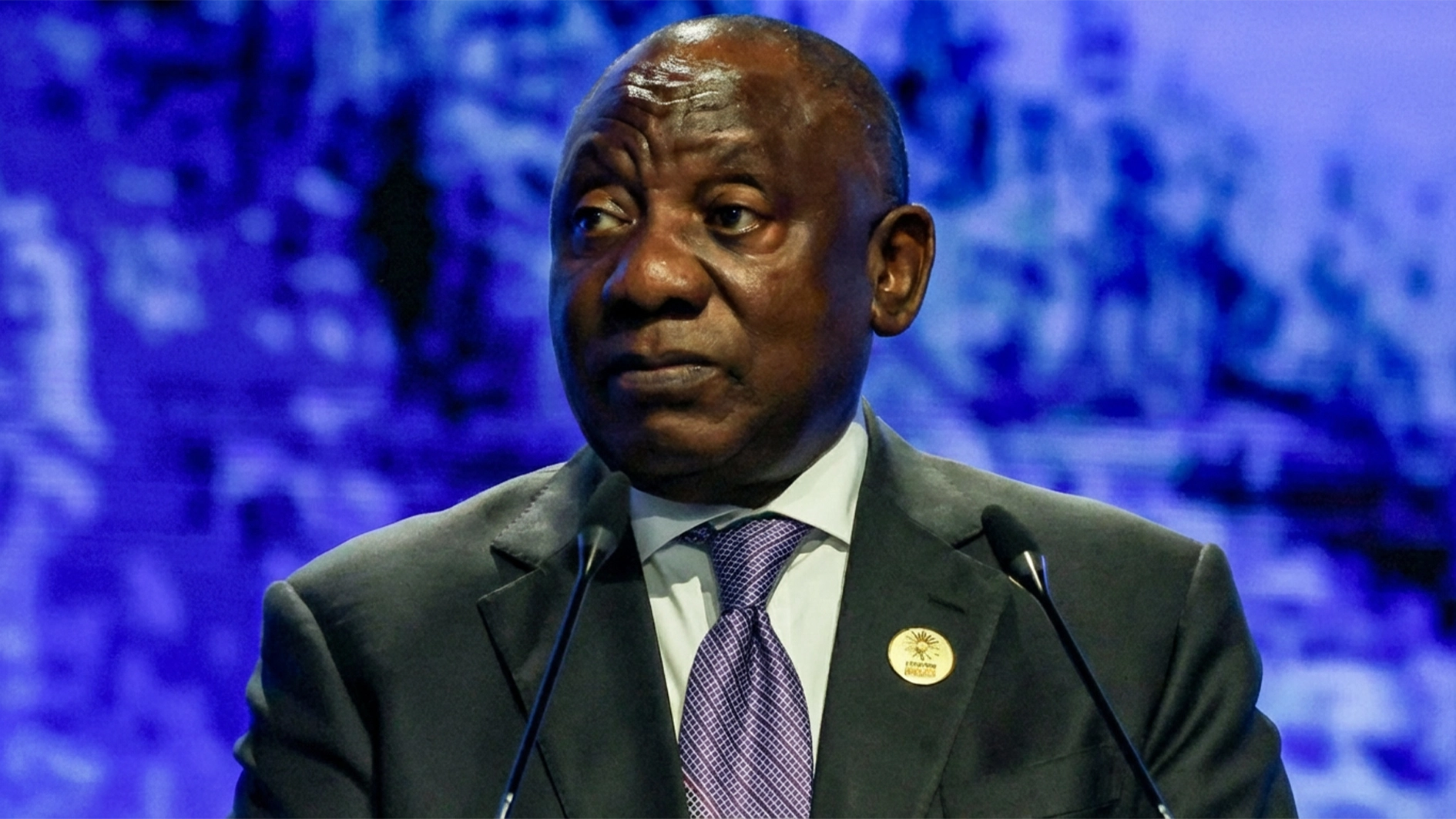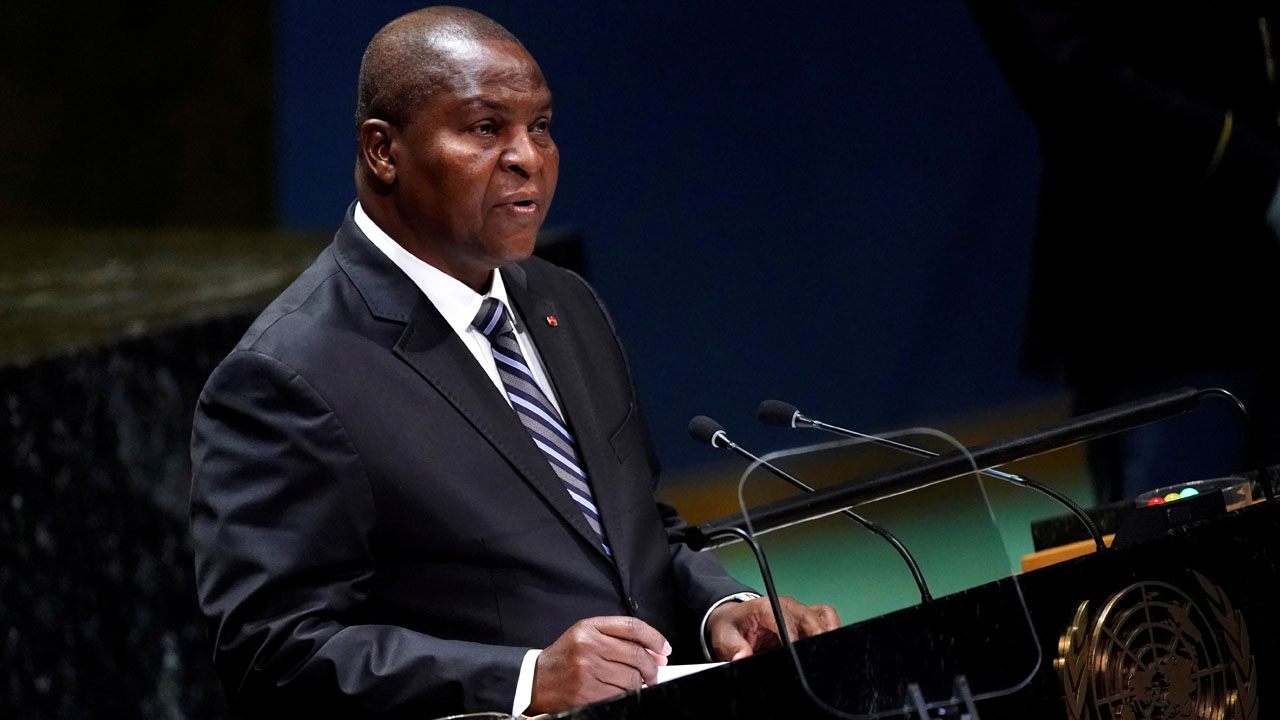The African Union suspended Guinea-Bissau on Friday, the AU Commission head told AFP, two days after the overthrow of President Umaro Sissoco Embalo in a military takeover.
The military announced on Wednesday it had overthrown Embalo, derailing the announcement of election results that had been expected shortly in the Portuguese-speaking West African nation.
The AU decided “to suspend Guinea-Bissau from its bodies with immediate effect”, chairman Mahmoud Ali Youssouf said.
The junta appointed General Horta N’Tam, previously the army chief of staff, as president of the transition, which is to last one year.
After initially being arrested by the military, Embalo fled to Senegal on Thursday.
Opposition presidential candidate Fernando Dias, who claims to have won the election, told AFP that he was “safe” and in hiding in the country.
The military takeover has been widely criticised.
United Nations Secretary-General Antonio Guterres denounced the “unacceptable violation of democratic principles”.
The Economic Community of West African States (ECOWAS) also suspending the country from “all decision-making bodies”.
Sandwiched between Senegal and Guinea, Guinea-Bissau has already experienced four coups and numerous attempts since gaining independence from Portugal in 1974. Its election results are often contested.
Among the world’s poorest countries, it is also a hub for drug trafficking between Latin America and Europe, a trade facilitated by the nation’s long history of political tumult.
Guinea-Bissau joins a number of other countries that suffered suspension by the AU following coups across the continent, including in Mali, Burkina Faso, Niger, Sudan, and more recently, Madagascar.
Sanctions were lifted in April against Gabon, a Central African country suspended after the overthrow of President Ali Bongo.
10 coups in five years
The military takeover in Guinea-Bissau brings the number of coups on the turbulent continent of Africa in five years to 10. Here is a recap:
-Mali
Malian President Ibrahim Boubacar Keita is overthrown by five army colonels in August 2020.
In May 2021, the Malian military takes over from the civilian leaders of an interim government.
Colonel Assimi Goita, who led both coups, is sworn in as transitional president.
After promising to hold elections in February 2024, the military puts them off indefinitely, pointing to the jihadist violence plaguing the country.
In July 2025, Goita approves a law granting himself a five-year presidential mandate, renewable without election.
Since September jihadists launch a fuel blockade, weakening the ruling junta.
Guinea
On September 5, 2021, mutinous troops led by lieutenant-colonel Mamady Doumbouya take over in Guinea, arresting President Alpha Conde.
Doumbouya in early November 2025 submits his candidacy ahead of December 28 elections that are meant to restore constitutional order.
Sudan
After weeks of tension between the military and civilian leaders who had shared power since the ousting of dictator Omar al-Bashir, the armed forces led by army chief Abdel Fattah al-Burhan stage a new coup on October 25, 2021.
Since April 2023 war has raged between the regular armed forces led by Burhan and the paramilitary Rapid Support Forces, led by his former deputy Mohammed Hamdan Daglo.
The conflict has so far killed tens of thousands of people and created one of the world’s worst humanitarian crises.
Burkina Faso
Burkina Faso underwent two military coups in 2022.
In January that year mutinous soldiers led by Lieutenant-Colonel Paul-Henri Sandaogo Damiba arrest President Roch Marc Christian Kabore.
Then in September army officers announce they have dismissed Damiba. Captain Ibrahim Traore becomes transitional president, but elections he promised do not materialise. In May 2024 the junta authorises him to stay for another five years in a country wracked by Islamist violence.
Niger
On July 26, 2023, members of the presidential guard overthrow Niger’s President Mohamed Bazoum, elected in 2021. General Abdourahamane Tiani, head of the presidential guard, takes over.
In March 2025, the junta extends by at least five years its transitional leadership of the country which is plagued by jihadist violence.
Gabon
In Gabon, ruled for 55 years by the Bongo family, army officers on August 30, 2023 overthrow President Ali Bongo Ondimba, less than an hour after he is declared winner of an election the opposition says was fraudulent.
General Brice Oligui Nguema is named transitional president.
In April 2025 he is elected president with 94.85 percent of the vote. He is sworn in on the basis of a new constitution approved by referendum during the transition.
Madagascar
In October 2025, the military ousts Madagascar’s president Andry Rajoelina and takes power following weeks of “Gen Z” anti-government protests.
Army colonel Michael Randrianirina is sworn in as Madagascar’s new president, promising elections within 18 to 24 months.






